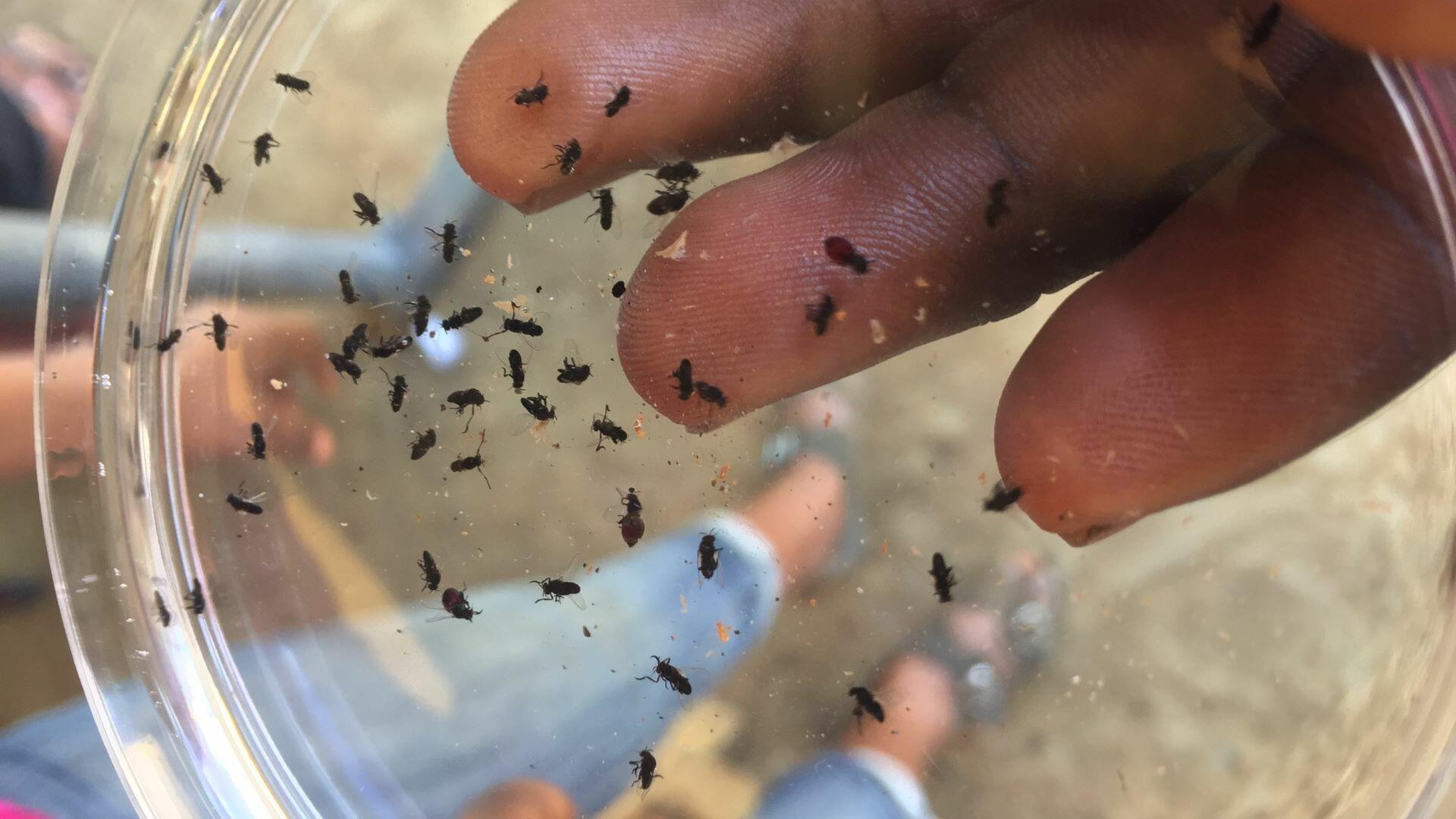
A new £4.9m clinical trial will evaluate whether an existing antibiotic can be repurposed as a short-course cure for onchocerciasis, a neglected tropical disease.
Working with partners in Cameroon, Germany, and Switzerland, the trial, known as FAME (Fusidic Acid Macrofilaricide Evaluation), will assess whether fusidic acid, an established antibiotic widely used for bacterial infections, can be developed into a safe and effective new tool to accelerate elimination of onchocerciasis. Fusidic acid was identified as a repurposing opportunity for the treatment of both onchocerciasis and lymphatic filariasis by the anti-Wolbachia Consortium (A-WOL).
Onchocerciasis, commonly known as river blindness, is caused by a parasitic worm transmitted through the bites of blackflies. It affects around 21 million people across sub-Saharan Africa, causing severe skin disease, visual impairment, and irreversible blindness. Onchocerciasis can also cause the lethal neurological condition of Nodding Syndrome. The disease traps communities in cycles of poverty by severely limiting people’s ability to learn and work in some of the most fertile regions of Africa.
The study is funded by the European and Developing Countries Clinical Trials Partnership (EDCTP) and coordinated by the Centre for Drugs and Diagnostics (CDD) and Centre for Neglected Tropical Diseases (CNTD) at Liverpool School of Tropical Medicine (LSTM).
Professor Joe Turner, coordinator of FAME, said: “Onchocerciasis remains a major barrier to health and economic development across Africa. We are excited to trial whether fusidic acid has the potential to offer a curative treatment with as little as seven days treatment. Establishing a short-course, affordable cure would be transformative to accelerate elimination efforts and reduce the burden on rural poor communities.”
Current elimination programmes rely on long-term mass distribution of ivermectin, which must be given every year for 12 years or more to interrupt transmission. While highly effective, ivermectin is challenging to deliver sustainably, does not kill adult worms, and cannot be safely used in areas co-endemic with Loa loa filarial parasites. With an estimated 205 million people living in at-risk regions, new therapies are urgently needed to accelerate progress towards elimination.
The FAME trial will test fusidic acid against the current gold standard, doxycycline, which is safe and effective but requires treatment courses of four to five weeks and is unsuitable for children and pregnant women. If successful, fusidic acid could offer a safe, short-course alternative, suitable for use across all affected populations.
Professor Sam Wanji, scientific lead for the trial in Cameroon, added: “This project exemplifies what can be achieved through international collaboration. By repurposing an affordable and widely available antibiotic, we hope to fast-track a treatment that could help bring river blindness to an end.”
The study will also introduce innovative trial methods, including artificial intelligence tools to accelerate parasite analysis and new biomarker approaches to monitor treatment response. Alongside its scientific goals, FAME will strengthen clinical research capacity in sub-Saharan Africa by training early career scientists in state-of-the-art trial methods.
Partners in the FAME consortium are The University of Buea (Cameroon), the University of Bonn (Germany), and the Drugs for Neglected Diseases initiative (DNDi, Switzerland).